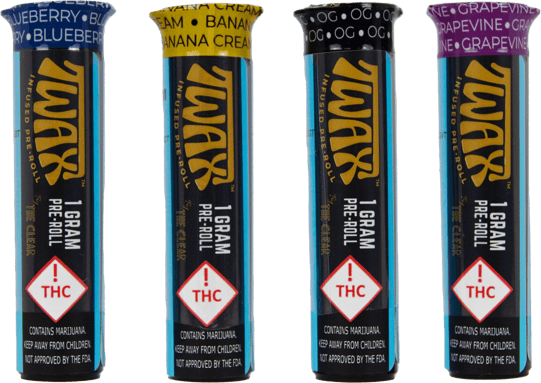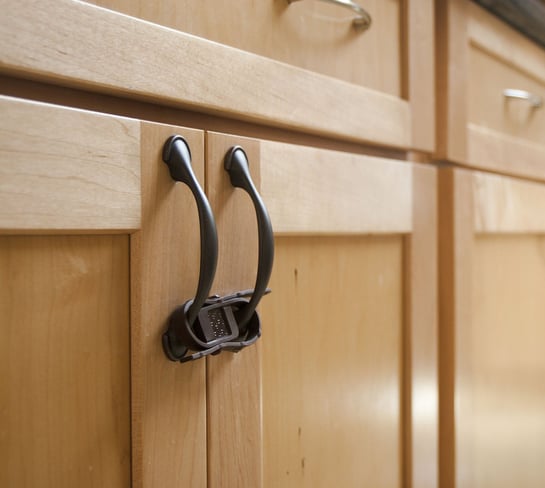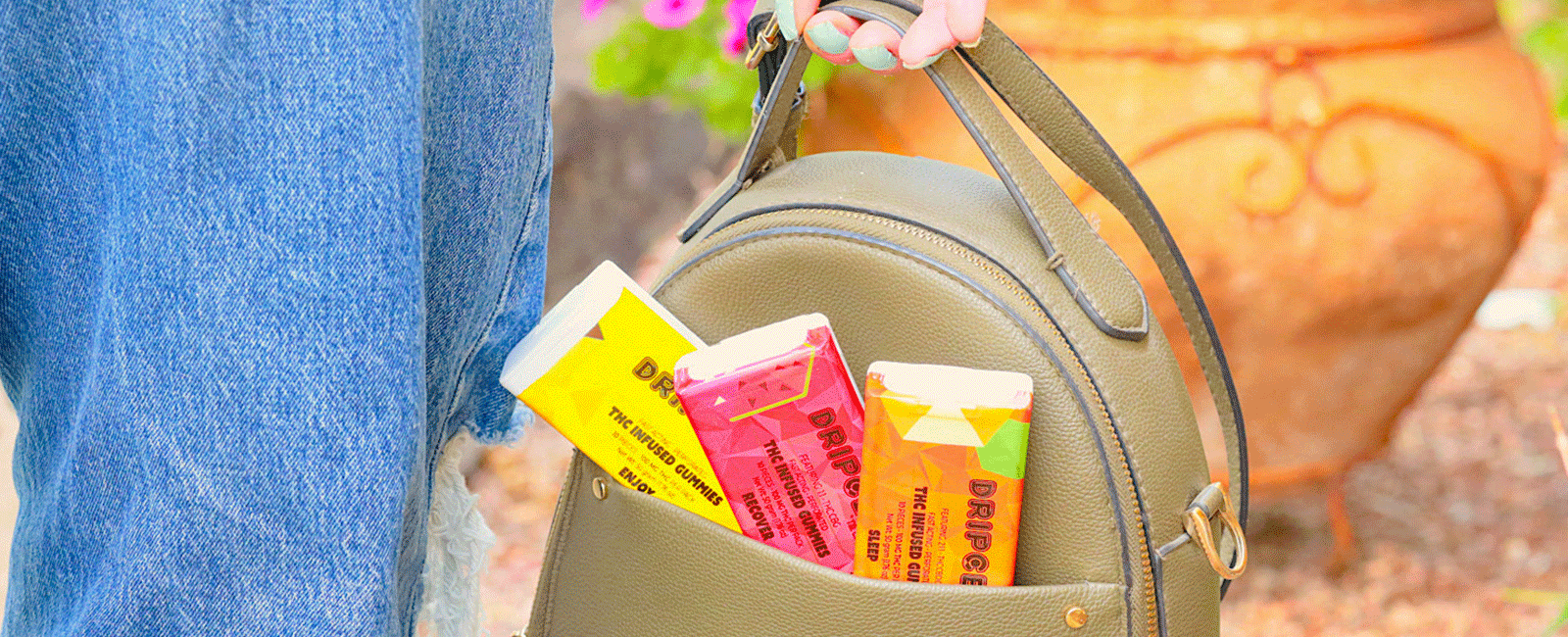Let’s talk about how parents can reduce the risk of kids getting into their cannabis. We will go over cannabis packaging, labels, safe storage, and more.
If you are a parent, it may have crossed your mind more than once about how to reduce the risk of your kid getting into your cannabis. Your kid may be anywhere from a young child to a teen and lets not forget about pets.
So as responsible adults, let’s talk about ways to prevent your child from getting into your cannabis flower, edibles, or cannabis concentrates. We will go over cannabis packaging, labels, safe storage, and what you should do if your child accidentally ingests cannabis.
Cannabis Packaging
Here at The Clear, child-resistant packaging for our products is a top priority and we follow all regulations. Keep in mind that specific regulations for packaging will vary by state. But the golden rule across the U.S. and Canada is that a cannabis container or package can’t easily be opened by a child under 5 years old.
Child-proof testing on cannabis packaging is done by many states that mandate it, which is a rigorous and expensive process. It includes third-party timed tests where a panel of adults will bring in the packaging to a panel of kids of various ages and tell them how to open it. The child should then still not be able to open the packaging to pass the test.
If you’ve purchased cannabis at a dispensary, then you may be familiar with some of the common packaging. For example, a slider lock box for cartridges, or mylar bags for edibles. Or pop top tubes or metal tins with lock buttons for pre-rolled joints.

A few things to note are that the packaging should have the words ‘Keep Out of Reach of Children”, and when containing multiple servings must be resealable while remaining child resistant. Cannabis should also not be packaged in a way that appeals to children such as having cartoon figures on the package or in any way mimics a legal product or brand.
Cannabis Product Labels
Besides the brand elements on product packages there are also required labels that dispensaries must include on their sold products to stay compliant with cannabis laws.
The labels will vary depending on the product category and state specific laws. Here are a few tips on how to read a cannabis label including understanding common elements that may be relevant to you as a consumer and parent.
- Name and License Number – By law every label on a store-bought cannabis product must have the producer’s name and product name including their license number.
- Batch Number – This is the string of characters and numbers that helps dispensaries keep track of which cannabis products came from a certain batch.
- Testing Lab – The name or license number of the independent testing lab that checked the cannabis for harmful materials and confirmed the active ingredients.
- Weight – The label should have the total weight of the product that will be measured in grams, ounces, or pounds.
- Total Cannabinoid Content or Total Active Cannabinoids – The total amount of cannabinoids that can be detected in a cannabis product.
- THC and CBD Potency – THC and CBD are the two most abundant cannabinoids in cannabis and labels should have the percentage and milligrams of each listed.
- Terpenes – These are the organic plant compounds that give cannabis its aromas and influences the effects of cannabinoids and most labels will indicate if these are present.
- Dates – The label should contain the date the product was made and a recommended date on when to use it by. Most products are most effective and enjoyable within a year depending on other ingredients included. However, if stored properly they will last longer. THC doesn’t expire but it can degrade over time.
Reading and understanding what is on the label of your cannabis product will help inform you of the effects and content. This may be important if your child or teen ever accidentally consumes the product so you can assess the impact.
Safe Storage
We recommend that you keep your cannabis product in the original child-resistant packaging and out of reach from children. Try to put the products away right after consuming and try not to store your marijuana product with other non-marijuana products so no one gets confused.
Also, do not store it where it can get too hot or too cold, and is easily accessible such as a car or windowsill. Keep your vape pen upright and cushioned using a pot sticker.
For homemade edibles or homegrown flower, keep them in an airtight container and label them, making it clear they are THC products. For tips on storing CBD products like tinctures, see this link.
We also recommend that you keep your cannabis products in a locked away container or cabinet. There are a ton of stash box options on the market today that you are able to lock with a code or key. These range from steel boxes, humidors, and an odor-proof caddy.
If you’re keeping your cannabis products and accessories in a drawer or cabinet invest in a lock to keep those places inaccessible to children.

Safe Storage for Vape Products
In addition to keeping your disposable vape pens and cartridges locked up and out of reach, here are a couple of other tips for safe storage of them.
As an extra precaution, you can unscrew the cartridge from the battery when not using it. Keep carts stored upright with the mouthpiece at the highest point. This will help prevent the cartridge from clogging.
Then keep your cartridge in a locked away place. Not only does it help keep the cartridge upright to help avoid clogging it also prevents a child from easily using the pen if they happen to open the locked space.
Acute Marijuana Intoxication
Medical professionals refer to ingesting too much cannabis and causing adverse effects as acute marijuana intoxication. Delta9-THC is the most abundant psychoactive cannabinoid in weed and can be responsible for adverse effects.
If your child ingested cannabis flower by itself there may be little to no symptoms as cannabis needs to be heated to activate the THC. If your child ate a traditional cannabis edible, they may feel the onset in one to four hours. If it’s a fast-acting edible the onset is as little as 15 – 30 minutes.
The effects of edibles tend to be stronger and last longer than inhaling cannabis. They can have a prolonged effect, especially for small children because of their size and weight, and can sometimes lead to hospitalization.
Signs and symptoms of acute marijuana intoxication include being off balanced with loss of coordination, and sleepiness ranging from mild drowsiness to being unable to wake up. Also, in extreme, rare cases symptoms can include trouble breathing and coma.
What To Do If Your Child Ingests Cannabis
If you suspect your child has accidentally mistaken your cannabis edible for a non-cannabis product and ate it, there are a few things you can do.
First, if you have concerns that your child ingested cannabis and is seriously ill, we recommend you call 911 or go to the closest emergency care. Hospitals like Children’s Hospital Colorado have medical specialists on hand for children specifically experiencing marijuana intoxication.
Immediate things to do is to make sure your child is not at risk of falling or hurting themselves because of adverse symptoms. Stay calm, make them comfortable and be sure they are in a safe, supervised area. Also gently offer them water to keep them hydrated to reduce anxiety.
You could also call your primary care doctor or veterinarian or call Poison Control at 1-800-222-1222. The Rocky Mountain Poison and Drug Center can be reached at 1-800-222-1222. The ASPCA Animal Poison Control Center Phone Number is (888) 426-4435.
If you suspect your child has inhaled cannabis or cannabis oil, the effects should not be as severe as if they ate an edible, but they do have a faster onset and will wear off in a few hours. However, with cannabis concentrates or flower products that have high THC content, consuming too much can be concerning.
Education is Key to Prevention
We believe this can be mitigated by educating parents and helping them to communicate with their pre-teens or teens about misuse. We will be publishing another blog upcoming on how to talk to your child or teen about cannabis and responsible, adult legal cannabis use.
This prevention messaging supports our company’s belief against unauthorized cannabis youth use. We firmly stand against the diversion of this important issue, the illicit market and untested products, and the illegal distribution of cannabis to children in schools or at home.
Leaf411 Cannabis Nurse Network

If you have questions about cannabis, we recommend you contact Leaf411, a cannabis nurse network that The Clear proudly sponsors. LEAF411 serves as an unbiased source of information from licensed professional nurses with specific training in cannabis.
If you have a quick cannabis question you can call the free Leaf411 hotline at 844-LEAF411 (844-532-3411) to speak with a nurse. Consumers who have multiple questions or would like more in-depth information can schedule a guidance session with a licensed cannabis nurse.


